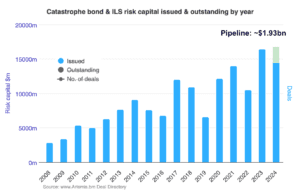Claim for Punitive Damages Based on Insurers’ Alleged Bad Faith Business Practices Fails
The court granted the insurer’s motion to dismiss the bad faith claim based upon allegations of a general business practice of acting recklessly toward an insured’s rights under the policy. Sandpiper Isle Condo. Ass’n v. Empire Indem. Ins. Co., 2022 U.S. Dist. LEXIS 114279 (M.D. Fla. June 28, 2022).
Sandpiper suffered property damage from Hurricane Irma. Empire accepted the claim but there was disagreement on the value of the damage. An appraisal issued an award in favor of Sandpiper but Empire failed to pay the benefits for two years.
Sandpiper filed suit and included a claim for punitive damages. Sandpiper argued Empire intentionally subjected insureds to “an error-ridden, lackadaisical adjustment process” to reduce Empire’s payments. Sandpiper noted other instance in which “Empire engaged in conduct to omit their financial obligations to the insured, including a similar investigation process.”
Florida law only permitted a claim for punitive damages where acts giving rise to the violation occurred with such frequency as to indicate a general business practice. But Sandpiper failed to demonstrate that Empire had a general business practice of acting with reckless disregard for an insured’s rights under the policy. In a conclusory manner, Sandpiper made such claims as asserting its belief that “such conduct runs rampant within Empire prior to and at the time of the Claim, and further believes that such conduct continues with Empire today.” Sandpiper did not explain how many different claims the “rampant” behavior occurred in or over what span of time.
Therefore, Sandpiper’s pleading failed to sufficiently implicate Empire’s general business practices. Empire’s motion to dismiss was granted without prejudice.





